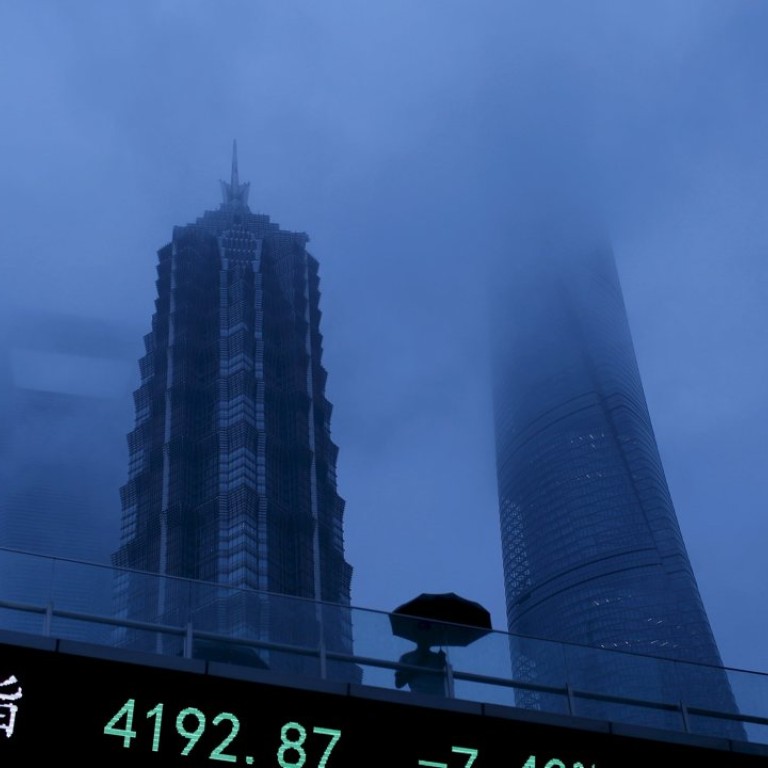
Air pollution and a sour equities market
Over three decades of China’s breakneck economic growth, the environment has paid a heavy price. On a good day, Beijing’s air quality index (AQI) can be as low as 25 – on bad days it can climb to 500 or above, almost double the pollution level considered hazardous.
One study earlier this year found more than 80 per cent of Chinese are regularly exposed to pollution levels deemed unhealthy by the US Environmental Protection Agency, with air pollution killing about 4,000 people a day or accounting for about 17 per cent of all deaths in China.
This surge of pollutants not only has a direct impact on health, its burden on the economy and business is becoming increasingly apparent. Last year, for example, Japanese electronics maker Panasonic became the first international company to pay a ‘pollution premium’ to its expatriate staff in China in an effort to persuade them to stay.
In addition to health issues, bad air quality has also been shown to affects people’s moods, making them more likely to feel unhappy, anxious, depressed and apathetic when air quality is low. Bad moods make people more pessimistic and research has shown that pessimism causes people to reduce the value they place on things.
So what impact does pollution have on Chinese investors and, as a result, on stock prices?
Several studies have examined the effect of weather and other environmental factors on trading behaviour. The NYSE’s daily return, for example, has been shown to be associated with weather conditions in New York City - the cloudier the city is, the lower the stock exchange index.
Together with fellow researchers Xiaoli Hu and Yupeng Lin, we extended this stream of research by examining whether air pollution in China affects stock returns through its impact on investors’ mood. Our study examined daily pollution data from cities across China and stock market data from 2000 to 2013.
We found that while the actual local air pollution has little direct influence on stock prices, what matters is how severe it is perceived to be.
More precisely, we found that when local air quality is perceived by investors to be worse relative to the air in Beijing, there is a noticeable and significant negative impact on stock prices.
For example, when Shanghai’s or Shenzhen’s AQI exceeds that of Beijing, the reduction in stock prices can translate into losses of tens of billions of yuan in market capitalisation on a single day. This perception of relative air quality also negatively affects trading volume.
But why should bad air affect stock prices?
The psychological perspective known as ‘social comparison theory’ suggests that people form sentiments or moods when they compare their personal status with that of other people while evaluating their own status or welfare.
This, in turn, shapes their perceptions of value and, as a result, their behaviour and decisions.
In the case of pollution levels, investors appear to compare their local AQI – or perceived AQI - with that of Beijing’s and feel happier or sadder when their city is less or more polluted, in turn influencing their stock trading habits.
China’s stock market is dominated by relatively unsophisticated individual investors, whose investment decisions are more likely to be affected by seemingly non-stock related matters.
Given that, we then looked to see whether this effect was less pronounced among institutional investors, since they are generally thought to be more sophisticated and hence, less affected by factors such as air pollution.
Of course, one might ask whether it was an economic slowdown caused by the impact of pollution on business operations, rather than poor investor sentiment that brought stock prices down.
However, our study found that the mood arising from the perception of relative air quality affects stock prices well beyond that accounted for by economic fundamentals – hence sentiment caused by pollution plays a significant part in stock prices.
This perception of relative AQI also influences trading volume. People tend to trade less when the perceived local air quality is worse than Beijing’s, thus, leading to a lower daily stock trading volume.
Similar to past studies which found that trading volume goes down in extreme weather, investors trade less when they think their local city is more polluted than Beijing and vice versa.
Our study found that air quality, an environmental factor, can influence people’s mood and hence biases in investor trading - specifically stock price and trading volume - beyond that of stock market fundamentals.
Oliver Zhen Li is Professor of Accounting at the National University of Singapore Business School

